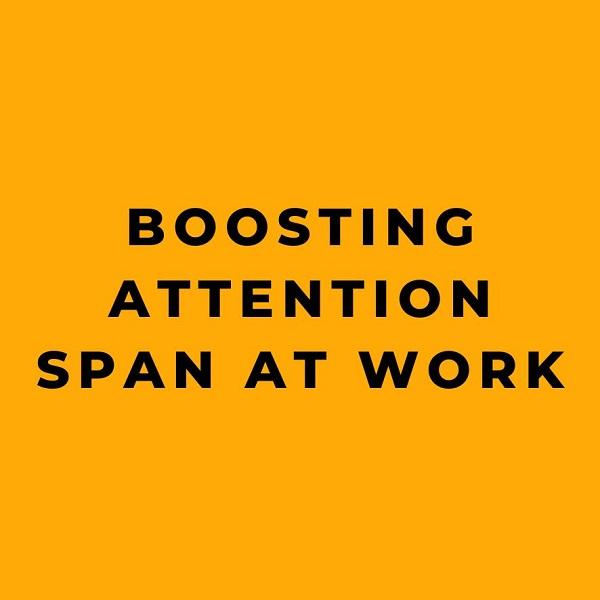In today’s fast-paced and technology-driven work environment, maintaining a strong attention span is crucial for productivity, efficiency, and overall work performance. With the constant influx of digital distractions and the increasing demands of multitasking, many individuals struggle to maintain focus and attention throughout the workday. However, by understanding the factors that contribute to a short attention span and implementing effective strategies, individuals can boost their attention span at work, leading to improved performance and job satisfaction.
Factors Affecting Attention Span at Work
The modern work environment presents numerous challenges that can significantly impact an individual’s attention span. Constant notifications from smartphones, social media platforms, and email can disrupt concentration and divert focus from important tasks. Additionally, environmental factors such as noise, hunger, and fatigue can further decrease an individual’s ability to concentrate. It’s essential to recognize these factors and their effects on attention span in order to develop effective solutions.
Understanding the Impact of Attention Span on Work Performance
A strong attention span is essential for effective communication, problem-solving, and decision-making in the workplace. When individuals struggle to maintain focus, they may miss critical information during meetings, fail to deliver personalized results to clients, or underperform on important tasks. Recognizing the impact of attention span on work performance highlights the importance of addressing this issue and finding solutions to improve concentration and focus.
Strategies for Boosting Attention Span at Work
There are several strategies and techniques that individuals can implement to boost their attention span at work. These strategies are designed to address the root causes of distraction and enhance focus and concentration levels. By incorporating these approaches into daily routines, individuals can improve their ability to maintain attention and increase overall productivity.
Practicing Attentive Listening
Active and attentive listening is a fundamental skill that can significantly enhance an individual’s attention span. By actively engaging in conversations and meetings, individuals can train their minds to focus on the information being conveyed. Practicing “whole body listening,” which involves maintaining still and controlled body language, and challenging oneself to listen without interrupting are effective techniques for improving attentive listening skills.
Devoting More Time to Reading
Reading is an excellent way to enhance the mind’s ability to concentrate and focus. By setting aside dedicated time for reading without distractions, individuals can train their brains to sustain attention for extended periods. Blocking out distractions such as phone notifications and engaging in attentive reading exercises can strengthen attention span and improve overall cognitive function.
Muscle Relaxation Techniques
Physical exercise has been shown to improve cognitive control and attention span. Engaging in moderate levels of physical activity, such as jogging, cycling, or taking brisk walks, can positively impact attention span. Muscle relaxation techniques, including yoga and meditation, can also help reduce stress and improve mental focus, contributing to an increased attention span at work.
Limiting Multitasking
While multitasking may seem like a way to stay ahead, it can actually diminish attention span and lead to increased strain levels. Focusing on a single task at a time allows all mental resources to remain concentrated, rather than being divided among multiple competing tasks. Implementing short breaks between tasks can help refresh the mind and prevent mental fatigue, ultimately improving attention span.
Minimizing Digital Distractions
Minimizing digital distractions is essential for boosting attention span at work. Muting notifications, setting specific times for checking emails and messages, and creating designated periods for focused work can significantly reduce the impact of digital interruptions on attention span. Creating a distraction-free work environment, free from unnecessary digital stimuli, can greatly enhance concentration and overall work performance.
Conclusion
Boosting attention span at work is essential for maintaining productivity, achieving optimal performance, and fostering a positive work environment. By understanding the factors that contribute to a short attention span and implementing effective strategies, individuals can improve their ability to concentrate and focus on important tasks. Practicing attentive listening, devoting time to reading, engaging in physical exercise, and minimizing digital distractions are just a few of the many approaches that can contribute to increased attention span. By prioritizing attention span enhancement, individuals can unlock their full potential in the workplace and contribute to the overall success of their organizations.










